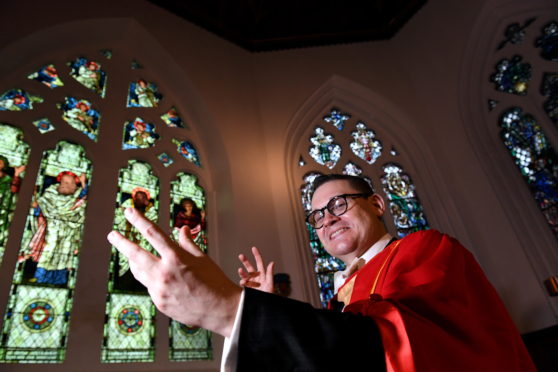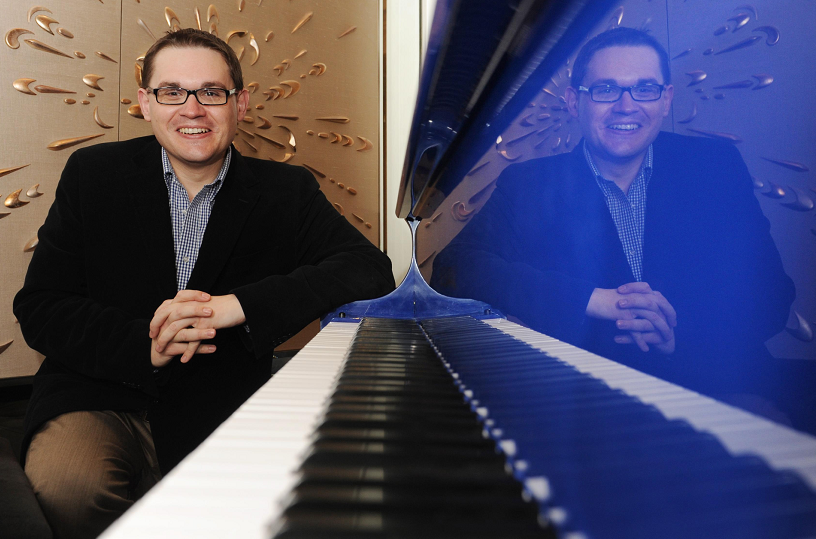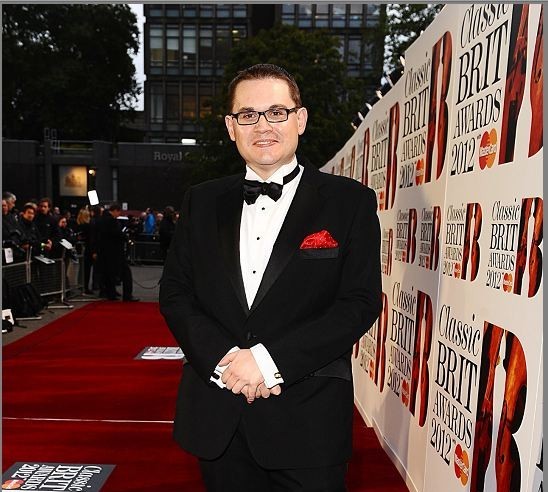A chart-topping Royal wedding composer has opened his heart for the first time about his struggle with mental health and alcohol problems.
Aberdeen University professor Paul Mealor told the P&J last night that he would be “taking a break” from leading his choir because he was at the “start of a journey” to recovery.
The renowned composer, who wrote music that was performed at the 2011 wedding of Prince William and Kate Middleton, has also contacted his students to offer a “full and sincere” apology for “any upset” he has caused them lately.
It is understood that some students at the ancient institution had raised concerns with university chiefs about Prof Mealor’s recent conduct and that he subsequently took a leave of absence that lasted several weeks.
Speaking publicly about his battle for the first time, he said last night that his hectic schedule had “taken a toll” on his mental wellbeing and that he had “not managed that in the way that I would wish”.
Alcohol had become a “crutch”, he explained, and it had been “adversely affecting my life and my work”.
Prof Mealor added: “Although it can be difficult, there is nothing wrong with asking for help. I should have done it sooner.”
The composer’s achievements include topping the music charts at Christmas in 2011 with his piece “Wherever You Are”, which was written for The Military Wives Choir and Gareth Malone, and was nominated for Best British Single in the 2012 BRIT Awards.
Earlier that year, an estimated global audience of 2.5 billion people watched on as his his motet, Ubi caritas, was performed by the choirs of Westminster Abbey and Her Majesty’s Chapel Royal, at the Westminster Abbey wedding of Prince William and Kate Middleton, known as the Earl and Countess of Strathearn in Scotland.
But Prof Mealor said that lately his “hectic and unrealistic schedule” had taken its toll on his mental wellbeing and that he had often turned to drinking to help him cope.
The composer’s decision to speak publicly about his problems for the first time were made possible, he said, by the “unwavering” support he received from family and friends during the period, and after realising that “many others are facing similar struggles”.
>> Keep up to date with the latest news with The P&J newsletter
He said: “I have been very fortunate to enjoy the types of opportunities for my work that do not come the way of a composer and conductor very often.
“As a result, I have found myself saying ‘yes’ to more and more requests, which I was immensely flattered to receive and which were simply too good to turn down.
“At the same time, I have a full-time teaching schedule at the university and, although I am passionate about both roles, I have been trying to keep afloat a hectic and unrealistic schedule.
“This has taken a toll on my mental wellbeing and on the choir I lead. In the last few months, I’ve not managed that in the way that I would wish.”
He added: “I am grateful to both my colleagues and students who have raised concerns about my wellbeing.
“Taking a leave of absence from the university for several weeks has allowed me to reflect upon the pressures I have faced and the ways in which I have been dealing with them.
“Regrettably, alcohol had become more of a crutch to me than it should and this had been adversely affecting my life and my work.
“I have sought help for this and now feel in a much stronger position. But I realise that I am just at the start of a journey which many others have travelled.”
Prof Mealor confirmed that while the choir had been told he would be “taking a step back for a period of time”, he intended to continue with his other university commitments, including composing.
In an letter he wrote to his students to explain his decision, he offered his “full and sincere apologies for any upset you might have been caused during this time”.
Last night, a spokeswoman for Aberdeen University said: “Any concerns raised regarding staff or students are taken extremely seriously and addressed through the university’s established procedures including providing appropriate support.
“We do not comment on the details of any specific case.”


